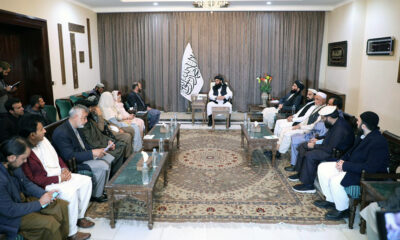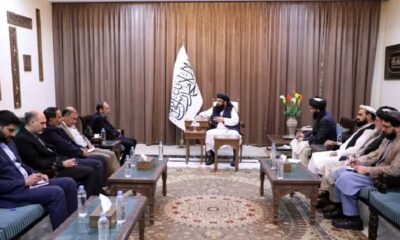Latest News
Afghan forces abandon a base, three outposts in Laghman
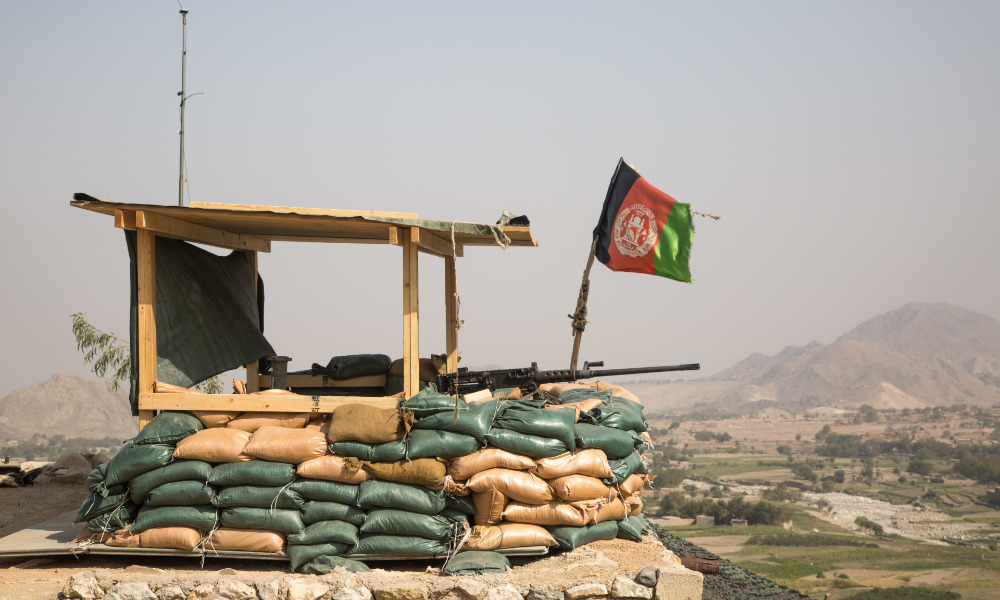
The Afghan Security and Defense Forces (ANSDF) have abandoned a military base and three outposts in the Alingar district of eastern Laghman province, sources said Friday.
Security sources told Ariana News that the base and the outposts have been captured by the Taliban militants after the Afghan forces retreated.
The Taliban, however, published pictures claiming the militants have captured 14 members of the Afghan forces and seized a number of weapons and ammo.
This comes after the Taliban militants captured the Shahr-e Kohna region of Baghlan-e Markazi district and Burka district of Baghlan province this week.
Afghan army officials stated that the operation underway to retake the Shahr-e Kohna of Baghlan-e Markazi.
Safiullah, an Afghan army commander in the north, stated: “We have recaptured large areas. We are capable to bring the situation to normal.”
“The Afghan forces have been deployed in the area. We will not let any place collapse to the Taliban,” Mohammad Akbar Barakzai governor of Baghlan said.
The security organizations stated that the Taliban have carried out 870 attacks – 10 suicide attacks, 100 bombings, and 30 targeted assassinations – on the Afghan forces during this week.
The Afghan army, however, stated that at least 250 Taliban militants have been killed in Kandahar, Badghis, Balkh, Helmand, Herat, Takhar, and Kunduz in the last 24 hours,
Fawad Aman, deputy spokesman for the Ministry of Defense (MoD) stated: “The Afghan Security and Defense forces have cracked down on the Taliban in parts of the country. Their attacks against civilians mean that the group believes in nothing but war.”
Latest News
Group of Afghans living abroad in Kabul for talks with Kabir
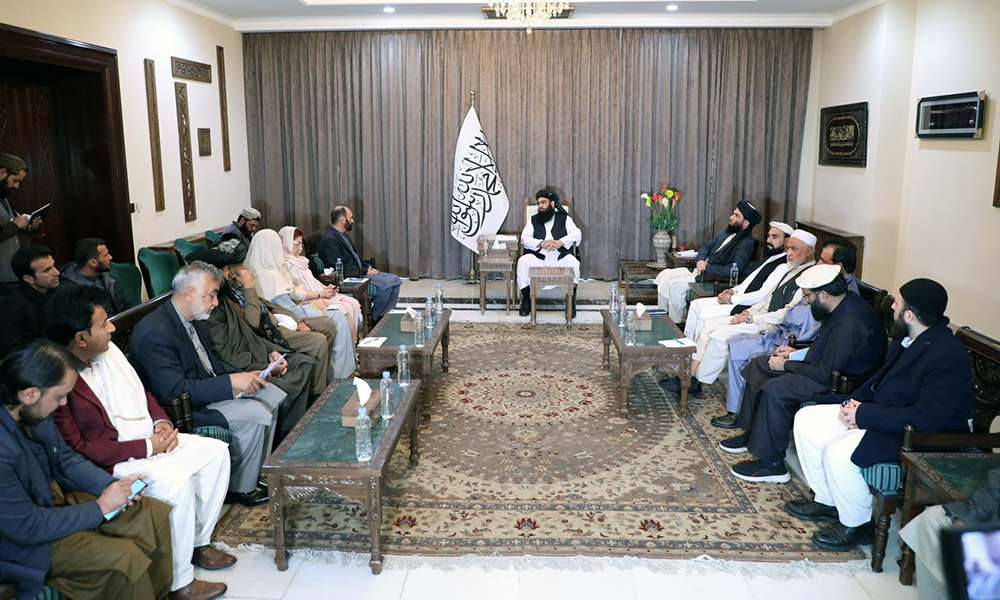
Mawlavi Abdul Kabir, the political deputy prime minister of the Islamic Emirate of Afghanistan (IEA), met with a number of representatives and elders of the Union of Afghans living in Europe who are in Kabul at the moment.
The group, representing the Union of Afghans living in Germany, UK, Belgium, Sweden, Austria, Turkey, Norway as well as the United Arab Emirates, shared suggestions and ideas of Afghans abroad with Kabir.
One of the delegation members, Dr. Khushal Rohi, said that they have unions abroad and represent a large number of Afghans.
He said the Islamic Emirate has made considerable progress and achievements in the last three years, which Afghans and the international community are satisfied with.
According to him, the current system is the result of many sacrifices and no one should be allowed to undermine and destroy it.
He added that Afghans living abroad have great scientific and economic abilities that the Islamic Emirate can use for the development of the country.
Rohi appreciated the economic and financial policy of Afghanistan and said that Afghanistan has been saved from islands of power, corruption, insecurity and extortion. According to him, no one in the region and the world is in favor of war.
He added that the Islamic Emirate should remove its cabinet from the caretaker mode and establish a permanent government. He also called for girls and women to be allowed an education and to work.
Delegation members said that the conditions and situation of Afghanistan is very different from what is reported in the media and said they will convey the true picture of Afghanistan to the community of Afghans living in Europe.
They added that there is a need to include other strata in the government and strengthen its framework.
Zargai Maliar, a member of the delegation, also spoke and said that he is happy to be in Afghanistan and observe the progress being made.
He said that the current opportunities for the settlement and strengthening of the Afghan system has historical value and there is a need to strengthen Afghanistan’s relations with Afghans and the international community.
He said women should see themselves in the Islamic system and women should be allowed to work and study.
He also said they are happy to be a bridge between Afghanistan and the European Union and will work for the country’s recognition.
This delegation also promised to convey the position of the Islamic Emirate to Afghans living in Europe and will encourage them to visit their country and observe its progress closely.
Meanwhile, Kabir welcomed the delegation and said that he hoped they were able to see the positive achievements made by the IEA.
He said that after the regain of power, a paralyzed Afghanistan was left to the Islamic Emirate and the Islamic Emirate started “to settle the country and activate and strengthen the system from scratch”.
He said that the majority of officials had been expelled or were in the process of being expelled when the IEA’s Supreme Leader announced a general amnesty and all the departments resumed their activities.
The political deputy said that the Islamic Emirate has changed the ranks of security and the leadership of the departments and the majority of security forces of the former government have left. However, a number of them have remained and now serve in the ranks of the police and the army, he said.
“The nation never wishes for the corrupt authorities of the past to come back to power and does not want Afghanistan to become an island of power and a center of usurpation, corruption and drugs,” said Kabir.
He said that after the announcement of the general amnesty, “the Islamic Emirate set its priority on economic development and infrastructure affairs, and in the past two years, Afghanistan has been moving in a good direction in the fields of economic and commercial strengthening”.
According to him, Afghanistan had been affected by occupation, war and violence for two decades, “seeds of disunity were planted in our country, brothers and sisters were encouraged to enmity for personal interests, and people were divided in the name of ethnicity, position and language”. He added that with the arrival of the Islamic Emirate, “this hypocrisy has disappeared.”
Kabir said that now Afghanistan is a single Afghan nation with an Islamic system, and sinister plans and efforts to divide it have failed.
He clarified that now is a good time to strengthen national unity, and for the Islamic system to stand on its own feet.
He added that the protection of national sovereignty, territorial integrity, national participation, independence and freedom are guaranteed and Afghanistan is taking fast steps to move towards a better future.
Kabir said that the priority of the Islamic Emirate in Afghanistan is to provide a permanent policy and economic stability, to consolidate national unity and to invest in it, and it is taking steps according to the lessons of the past.
He added that the Islamic Emirate believes that Afghanistan is the connecting point of the region and implementation of major regional projects is impossible without the presence of Afghanistan, and they want these projects to be implemented.
According to him, dozens of companies have invested in Afghanistan and there are discussions with many other companies.
He said that the Islamic Emirate wants order and stability in the region and the world. “Our position is that we respect the independence and territorial integrity of countries and our independence should be respected as well. The Islamic Emirate will never allow threats to be made against anyone from Afghanistan.”
He told the delegation that today security is ensured throughout Afghanistan, you can travel anywhere in Afghanistan without fear and encourage Afghans living in Europe to return to their homeland.
He welcomed the proposal of the mentioned delegation that they mediate between the Islamic Emirate of Afghanistan and European countries.
Latest News
US identifies Kabul airport suicide bomber
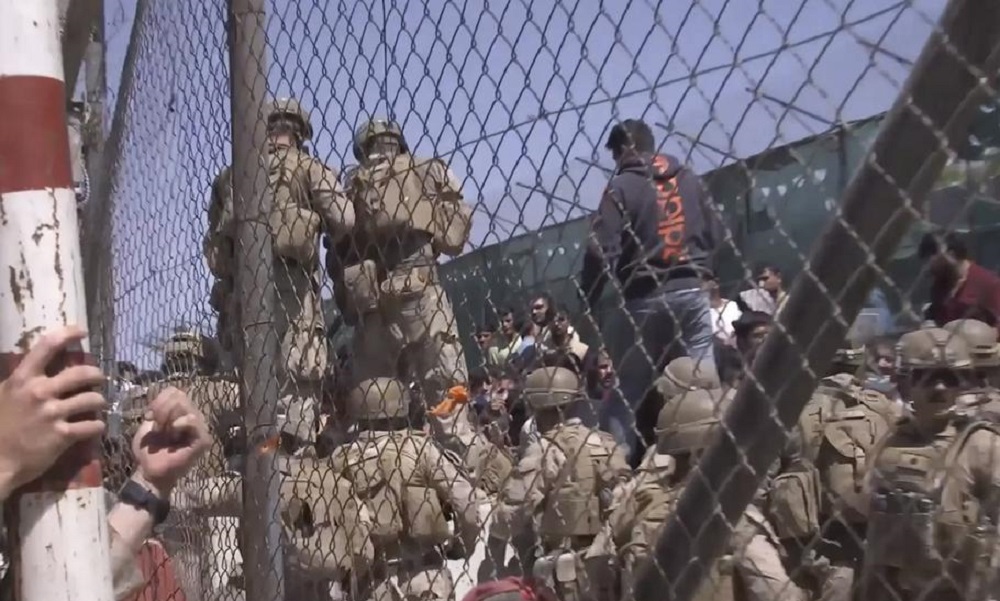
The U.S. military has for the first time publicly named the suicide bomber behind the deadly attack at Kabul airport during the chaotic final days of the American withdrawal from Afghanistan in 2021.
The identification was part of findings from a supplemental review ordered by U.S. Central Command to build on the military’s initial investigation by taking into account information and claims that have since surfaced.
The review also found that members of a Marine scout sniper platoon at the airport who believed they had the bomber in their crosshairs were mistaken, and they would not have been able to prevent the attack, ABC News reported.
In a recent briefing with reporters about the review, U.S. officials identified Abdul Rahman al-Logari as the perpetrator of the attack that killed 13 American service members and some 170 Afghans on Aug. 26, 2021.
Al-Logari had been a member of Daesh-Khorasan since 2016, according to a member of the review team from the US army.
At one point he was detained by coalition forces and held in custody, according to the review official.
Daesh claimed responsibility for the attack at Abbey Gate shortly after the bombing, praising al-Logari for committing the attack.
Republican Congress members have repeatedly raised the possibility the bombing could have been prevented in their attacks on the Biden administration’s handling of the withdrawal, largely based on testimony from former Marine Sgt. Tyler Vargas-Andrews, a member of one of the sniper teams providing overwatch near Abbey Gate.
In a March 2023 House Foreign Affairs Committee hearing, Vargas-Andrews claimed his team had a suspicious man matching a description of the suspected Abbey Gate suicide bomber in his sights before the deadly explosion on Aug. 26. He said they were denied permission to fire and prevent the blast, which claimed two of his own limbs.
Latest News
Tehran says it won’t allow anti-IEA political activities to take place in Iran
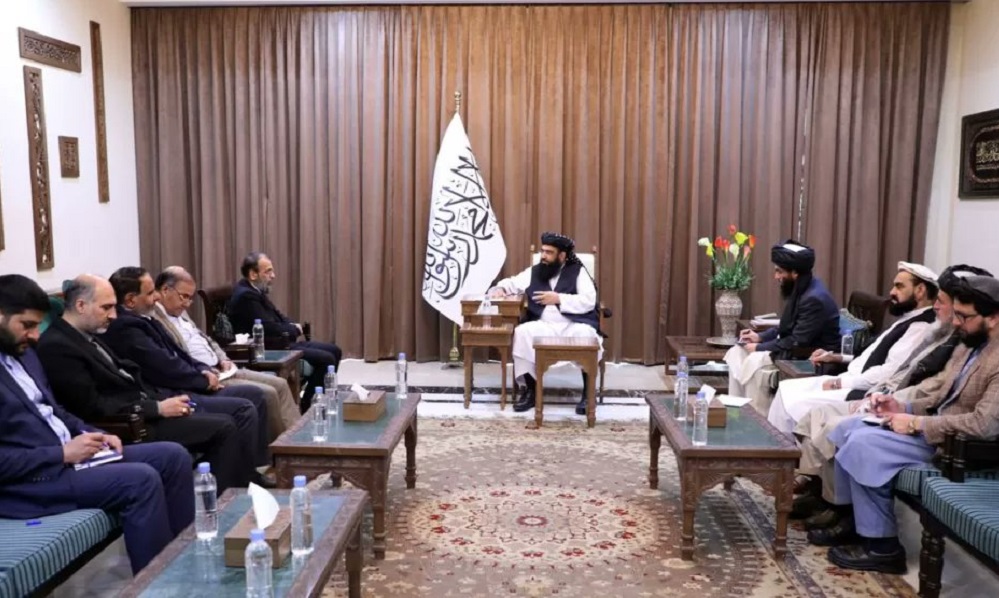
Iran’s deputy ambassador in Kabul, Sayed Hasan Murtazawi, said on Monday that the opponents of the Islamic Emirate of Afghanistan (IEA) live in his country as ordinary refugees and they are not allowed to engage in political activities.
Murtazawi made the remarks as he met Mawlawi Abdul Kabir, political deputy of the prime minister, in Kabul on Monday.
The official said that his country is seeking to facilitate positive engagement between the regional countries and the Islamic Emirate, and expand the relations between Kabul and Tehran.
In the meeting, Mawlawi Abdul Kabir considered Iran’s attack on Israel as Tehran’s legitimate right and added that Afghanistan wants to have good relations with all its neighbors.
-

 5 days ago
5 days agoSaar: Concerns over drug trafficking from Afghanistan discussed
-

 Tahawol5 days ago
Tahawol5 days agoTahawol: Concerns over continuation of acting government discussed
-
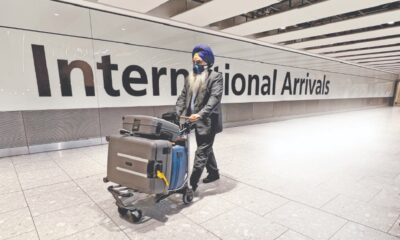
 Regional3 days ago
Regional3 days agoIndian foreign ministry advises against travel to Iran, Israel
-
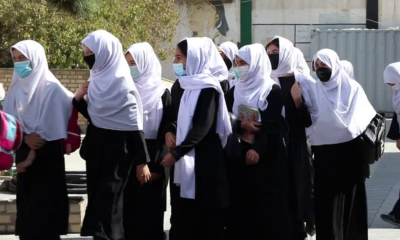
 Latest News5 days ago
Latest News5 days agoBanning girls’ education has caused economic issues: private school officials
-

 Latest News4 days ago
Latest News4 days agoAfghanistan withdrawal probe sparks anxiety within Biden administration: US’s McCaul
-

 Sport5 days ago
Sport5 days agoGujarat end Rajasthan’s winning streak with IPL thriller
-

 Latest News3 days ago
Latest News3 days agoTop former US general claims Daesh-Khorasan is ‘on the upswing’
-

 Latest News3 days ago
Latest News3 days agoLightning strikes in Helmand kill one, injure three




